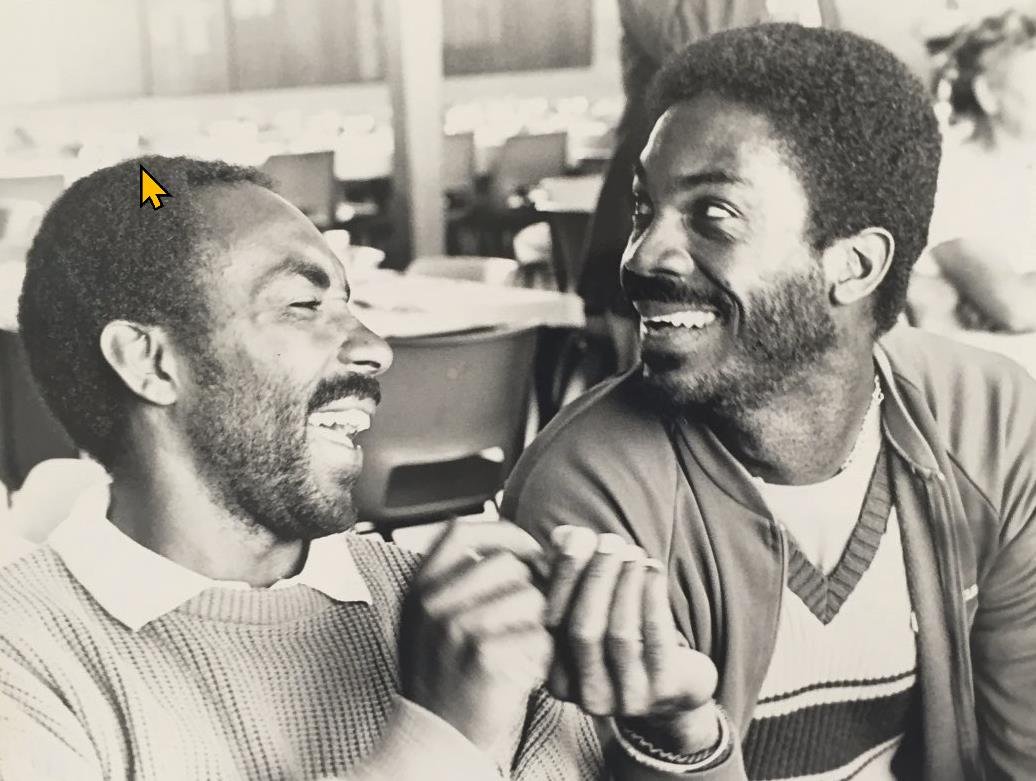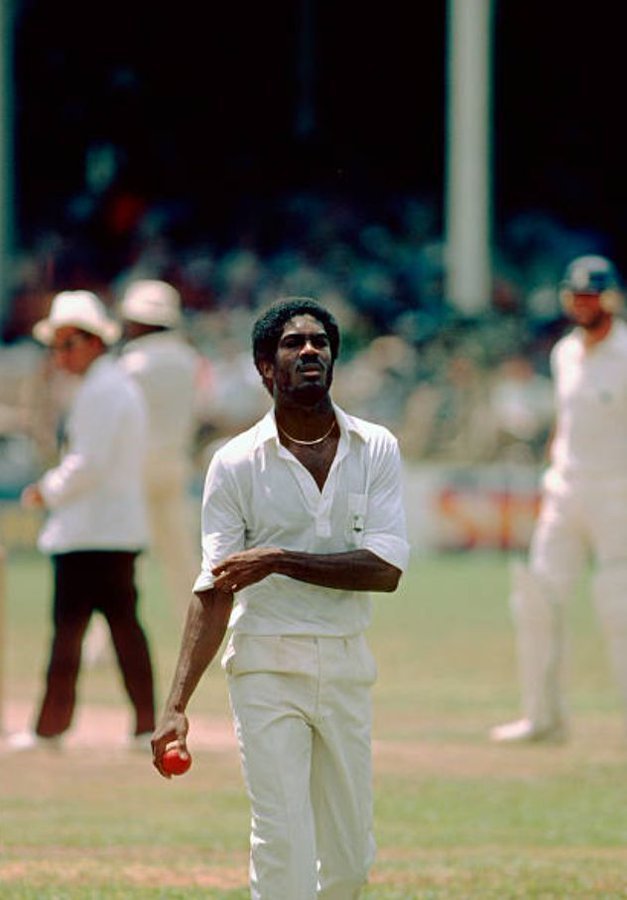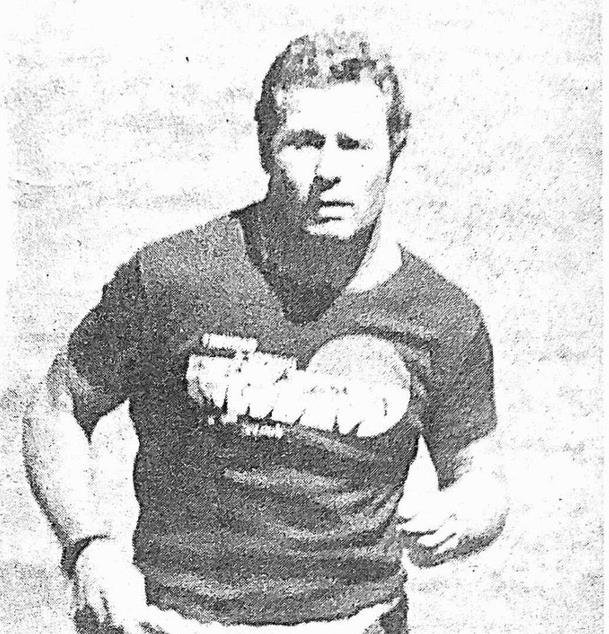In cricket, few individuals stand out as much as the man behind the mighty machine. Dennis Waite made Forrest Gumps of all of us, said Michael Holding. He went everywhere with us, island-hopping for a home series or on tours around the globe.
Here is this myth about fast bowlers downing pints of beer. It was said of Harold Larwood, Fred Trueman, and Wes Hall. The quintessential quickie is the fellow who knocks the head of batsmen and then disappears at the end of the day to boost the profit of breweries around the town. The reality is something different.
In the hard grind of international cricket, a fast bowler may be looking after himself rather well, in his private life, in the gym, at the nets on the running track, and on the field. Yet, he’s vulnerable because of the demands placed on his physique. His feet may be killing him, a stud may be coming through, his toes may feel they require amputation, and he may be thinking of the cool of the dressing room. Just then, the captain tosses the ball to him and says, “Look, they are 200 for 3.
I want some quick wickets six overs, give it full blast.” The fast bowler strives to meet the demands, and in doing so, may bowl himself into a bad injury. The job will be much easier if he’s physically and mentally fit. The problem facing West Indies fast bowlers is slightly different. Ever since Clive Lloyd opted for a four-man pace attack, it’s been a matter of resting two of them, while the other two went to work. So. All four do get sufficient rest between spells. But in recent years, the West Indies quartet has been bowling on lifeless tracks devoid of grass and bounce. The job has become that much harder. They have had to use their shoulders to extract life from any wicket. “They’ve got the hardest job in the game,” says Dennis Waite, the physiotherapist of the West Indies team. “It’s amazing how they go on and on. Not so amazing. Waite is just being modest. He’s been doing a wonderful job keeping the fast bowlers in great shape. ever since he joined the team back in 1978, Dennis Waite has been to West Indies what Bernard Thomas is to England.
Reds Pereira had a long chat with Dennis Waite in Bombay. where the West Indian fast bowlers found the wicket as unresponsive as any they have come across on this tour. The problem was aggravated by the run-up area, that is being as hard as concrete. “They had used the roller 10 meters or so beyond the wicket area. Wes Hall said. “The boys were shocked in their socks, running on concrete like that. They strove manfully, shocks notwithstanding. They had been conditioned so beautifully.

Excerpts from the exclusive interview with Dennis Waite:
Question: Dennis Waite, when the team arrived in India, when you had your first session with them, what shape were they actually in?
Answer Michael Holding. Well, they were in quite good shape, actually, because most of them came out of the World Cup, so they were in pretty good shape, and of course, there wasn’t that much work. They had done their work.
Q: In a situation like that, what sort of work did you actually start with, bearing in mind that the tour started pretty shortly after arriving?
A: Well, we did not have to do much because, as I said, they were in fairly good shape and it was mainly just going through the basics and not killing the body because you have to watch them over a long period of time on tour and you don’t have to work them too hard. You have got to give them an off and make sure you don’t work them too much into the ground.
Q: You have a couple of new faces on this side, Richie Richardson, Rojer Harper, and Baptiste, for example. and Pydanna of course, who was with you before in Pakistan. How long does it take for the new members to get the hang of the exercises, and understand basically what you want from them?
A: It doesn’t take too long and basically the new boys, as you said, have probably heard of me or seen me in action when they toured with the West Indies or from their teammates who have been in the squad over the years. So they came along fairly well and adopted very quickly.
Q: Let’s look at the exercises you have been applying.
A: Basically, we go through the same pattern, what we have been using, but sometimes I vary the exercises, which doesn’t give them boredom. Merely doing them every day is probably slightly boring, so we stretch them around Basil. We are doing the calisthenics and mainly the shiny AM flexibility exercises. I think that’s the main thing in any sport.
Q: If you had longer periods between actual games, would you advocate a different set of exercises?
A: If we had longer times, yes, in between games, if we had more rest, I think I would allot a little bit more work to them. We’d probably do a little more running, a little bit more sprinting, a little bit of exercise. But as you said, we are playing a very tight schedule here and we got to leave some in the bank. So I think we do enough, definitely. If you look at the Indians we do twice as much as they for starters. I’m just trying to keep them at their peak level without going over the top and you know, you sometimes make a mistake, but basically, we’re being quite good at it for the present.
Q: Let’s look at some of the injuries you have had to cope with on the tour so far
A: Well, basically we had a little strain in Michael Holding’s hamstrings. That was the latest one. We had Milton Pydanna with a slight chip in the finger, hit by a ball. These things come very easily, especially when I think the ball causes 50 percent of the damage to a cricketer because being hit somewhere in the body will cause you problems. Andy Roberts, he came with a bad knee but his knee is all right now. No problem. He’s doing a lot of work and his knee is strong. He got a little bit laid back initially because working so hard on the knee, he caused himself some strain in the lower back by doing so many weights. Conscious of the knee he wanted to be fit, wanted to play in the team. As for Michael, he’s done the right thing. When they’ve problems, I like to work on them straightaway so that it would pay dividends. I know it’s hard between games, but that’s the way it is. Michael, we brought him along nicely. He’s doing pretty well.

Q: A lot of players come expecting the worst in terms of water, expecting they might get sick and they are asked to take all kinds of vaccines. What have you done in trying to ensure that the players stay as healthy as possible?
A: They have come with all their injections. The water is always a problem. I don’t think any of us will drink water on the whole tour. We’ve got mineral water and we will probably have soft drinks, coffee. So, that’s all right. The boys are conscious of that. I tell them to leave the water completely alone. As for food, we see that we eat the right kind of food. don’t go for anything fancy, just the basic food. But there’s always a chance of getting a touch of ‘Delhi belly’. In the first week or so, we all got a little bit sick. Maybe it’s the body getting used to the different conditions. But the boys have learned to look after themselves. And so far, we haven’t had any serious problems, touch wood.
Q: You, of course, give them a couple of tablets each: Monday morning?
A: Yes, I’ve come with a hell of a lot of medical supplies. You know the boys are very keen to go to Australia, in good shape. I give them Malaria tablets every Monday morning. On other tablets, I give them as and when problems arise. We’re getting good help from the Indian Cricket Board. I’m quite happy with the situation.
Q: Let’s look at your background, Dennis. You have a rugby background, a different sport in Australia. What sort of change or adjustment you had to make to do what you’re doing now?
A: I think I’ve picked up pretty quickly. I believe in horses for courses. I came out of rules football, and rugby. You know rugby, hard and sometimes brutal sport. Physical sports have body contact, so the conditioning is extremely hard. Now you look at the cricket players the bowler is not going to run into the batsman or knock a bloke down by tackling. So changed my method of action, and started thinking about what a cricketer requires. Sprinting? Yes, he does have to do it. Movement, flexibility? Definitely. I remember the day when I met Clive Lloyd and the boys back in 78. I didn’t know what to expect, and they didn’t know what to expect, either. So we put our heads together and came up with a fresh set of workouts. I thought they needed to have flexibility and be more supple in their movements. Like touching the ground with their hands or even their elbows without bending at the knees. The boys have been doing pretty well. Even the younger ones realize how important the routine is. The team has been staying ahead of the rest of the world, so there must be something good in what we’re doing.
Q: The West Indies teams in the past didn’t have this kind of training unlike the Australians and English teams. How long did it take you to win them over?
A: I don’t know how long, but you know, when the player feels good, he believes that what he’s doing is good for him. So you don’t have to win a guy over. The boys know they have to do it if they have to survive in this tough world of professional cricket. I must give a lot of credit to Clive Lloyd. He’s always given me the reins. I do what I want to do though I discuss with him what the boys require and so on. He’s been really helpful, and backed me 100 percent. He does the exercises all the time and never misses the routine. So if you see the captain not sparing himself, it’s easy to follow the example yourself.
Q: If you see a player not pushing himself enough, do you have a quiet word with the captain in the interest of the team and the player himself?
A: Well, if a player is not pulling his weight, not trying 100 percent, the captain can see it. I pick it up quickly and do it accordingly.

.